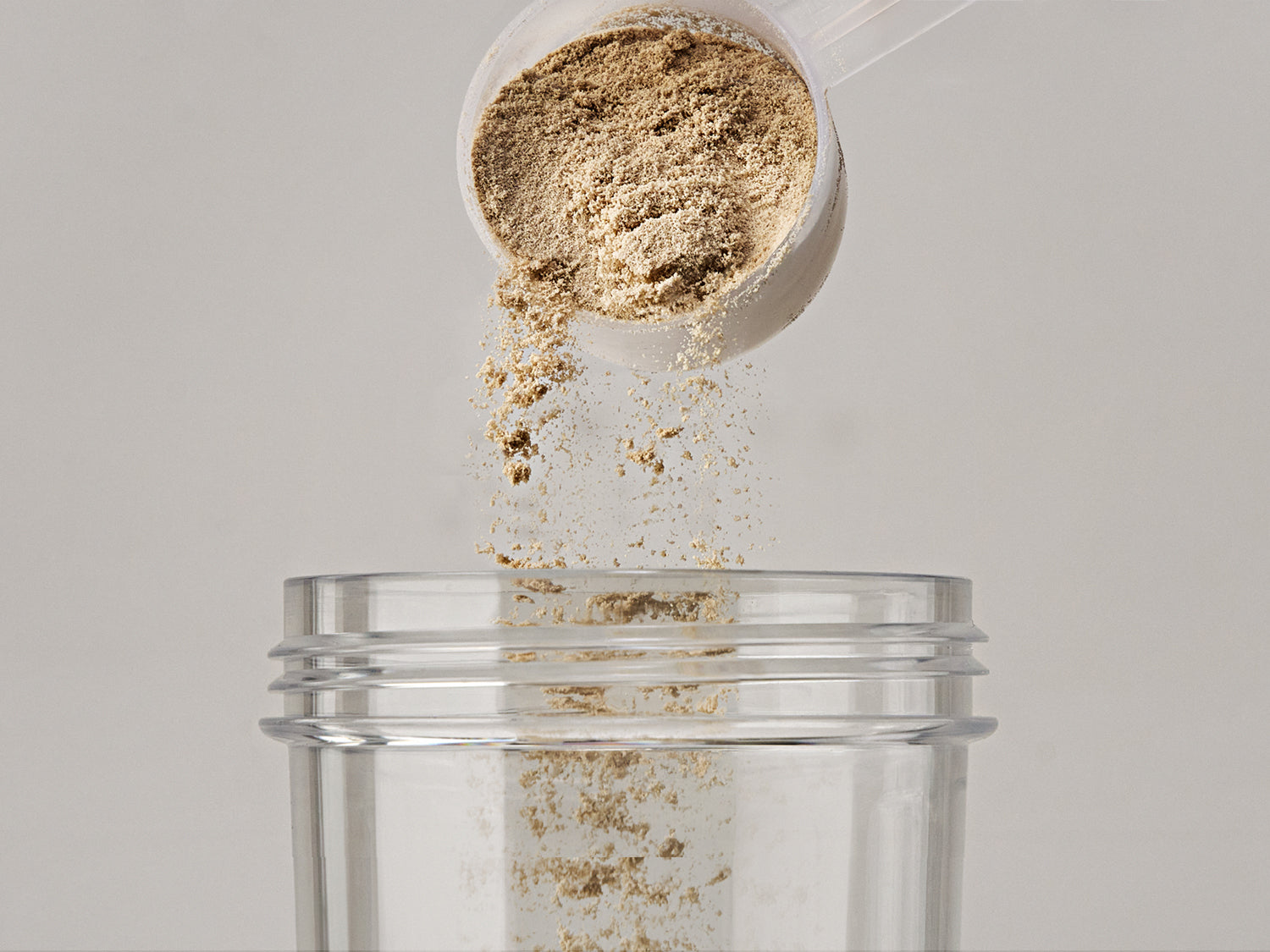During the 2018-2019 PGA Tour® season, the top five putters worldwide earned an average of almost $764,000, while the top five players off the tee during this same time period earned an average of just over $1,220,000. This illustrates that the best professional drivers are clearly making more money than the best putters in today’s game. Therefore, if you want to take your golf game to the next level, you’re going to need to drive AND putt for dough.
One of the best ways to improve your overall golf game is by taking care of your body and mind both on and off the course. While nutrition and golf may not have always seemed to go together in the past, proper nutrition and hydration for golfers is more important than ever today as the popularity of the game and the level of competition rises.
Also Read: The Ultimate Push Pull Legs Routine
That’s why you should put together a top-notch nutrition plan that places an emphasis on what you should be eating and drinking before, during, and after each round (or workout session). So, let’s take a closer look at proper nutrition for golfers.
By the way, do you know the best time to take creatine?

Off-Season Strength Training And Nutrition
It’s never a good idea to mess too much with your golf swing, diet, or overall game if you have big tournaments coming up. Luckily, the off-season affords you the opportunity to make changes to your game as you have more time and freedom to experiment.
If you want to see big improvements in your game and overall health, you should start with a new golfer’s diet that prioritizes proper hydration, nutrition, and recovery. A balanced diet for golfers should be made up of all the major nutrients – carbohydrates, proteins, and fats. Golfers also need to make sure that they’re drinking fluids and staying hydrated since a slight drop in hydration can cause fatigue and even confusion. So, during the off-season really focus on high-quality eating, maximizing key nutrients and antioxidants, and optimizing fueling around your workouts.
And if you’re looking to add distance to your drive, you should develop a strength training program in the off-season that places an emphasis on building muscle mass. After all, muscle mass is critical for athletic performance, as well as health and survival. You may also want to consider taking a supplement like creatine monohydrate.
A study published in the Journal of the International Society of Sports Nutrition found that supplementation with creatine for 30 days significantly improved ‘best drive distance.’ The study also noted that since ‘the golf swing is an anaerobic event, it is logical that creatine supplementation may have the potential to improve golf swing power.’
Creatine is one of the most popular and effective dietary supplements due to its ability to improve strength, power, lean mass, and explosive performance. MuscleTech Platinum 100% Creatine delivers creatine directly to your muscles, which is exactly where it needs to be to drive performance (both literally and figuratively). Platinum 100% Creatine can help to increase muscle size, enhance strength, and improve recovery. It can be taken either pre-workout or post-workout.
Nutrition Plan For Golfers Come Tournament Time
Competitive golfers can burn more than 2,000 calories while walking over five miles on an 18-hole course. That’s why proper hydration with either water or a sports drink is crucial for golfers, especially when they’re playing hours on the course in hot weather.
It’s important to note that your hydration efforts should start before the round even begins. So, let’s take a look at what golfers need to drink and eat in order to be fueled up and ready to go for their upcoming match.
Before The Round
No serious golfer just wakes up and arrives at the course without having hydrated and eaten a nutritious breakfast (or pre-round meal) that will energize them for the day ahead. Before stepping up to the first tee, you should have already eaten a meal that’s rich in protein, healthy fats, complex carbs, and a limited amount of whole-grain starches. A sample breakfast before a match can include scrambled eggs, fruits like bananas, apples, or pears, and avocado on whole-grain bread.
Optimal hydration before a match can’t be overstressed as a one-percent loss in bodyweight from dehydration increases your heart rate and a two-percent drop in bodyweight from dehydration can affect your motor skills and cognitive thinking. Golfers should drink fluids with their pre-round meal and then drink at least eight ounces of fluid every hour leading up to play.
The First Four To Six Holes
Golfers should plan on drinking between eight and 16 ounces of water or sports drink every four to five holes. Sports drinks offer added carbohydrates and electrolytes, which makes them an ideal choice on very hot, long days. Aim to ingest at least 30 grams of carbohydrates per hour, or 16 ounces of sports drink over nine holes.
For golfers who plan on eating during the first four to six holes, the goal is to stabilize your energy levels. So, you’ll want to consume low-carbohydrate foods and a small amount of protein – think fruits like apples or oranges and a handful of nuts. It’s also a good idea to take foods like beef jerky, peanut butter crackers, trail mix with nuts, or a protein bar on the course with you. Just make sure to avoid foods that will go bad in the sun/heat, and also junk food.

Holes 7 to 12
Over the next six holes, the main objective is to maintain your energy levels with foods that provide a balance of protein, carbs, and healthy fats, while also continuing to stay hydrated. Some food options to consider are a peanut butter sandwich on whole-grain bread, a lean protein source like grilled chicken breast (also on whole-grain bread), or a Grass-Fed 100% Whey Protein shake with a banana.
Another intra workout/match supplement to consider is BCAA Amino Build, which features seven grams of BCAAs plus electrolytes. Since the back nine is typically where all of that swinging and walking starts to catch up to golfers, you can use BCAAs to help fight fatigue.
The Final Six Holes
If there’s ever a time you want to achieve peak golf performance, it’s the final six holes. This is when you need a surge of energy and the ability to maintain your concentration and composure as the pressure builds with every shot.
Depending upon your preference, you may choose to consume higher-carbohydrate foods like dried fruit, or low-sugar sports drinks that will provide immediate energy to your muscles and brain. Drinking black coffee or tea can also help as caffeine has the ability to stimulate the central nervous system, heightening both your concentration and alertness.
Post-Round Recovery
Once the match is finished, it’s time to start thinking about muscle recovery and proper hydration. So, head straight into the clubhouse after your round and drink some more fluids. You’ll also want to eat a post-round meal that features quality protein, healthy fat, and complex carbs to help restore your energy levels.
You can also try a nighttime recovery formula like Muscle Builder PM, which facilitates muscle energy production and promotes muscle growth, while preventing muscle breakdown. Muscle Builder PM also includes a comprehensive blend of nighttime ingredients, including melatonin, which may help you sleep better if you’re typically someone who has trouble falling asleep after a match because you keep replaying all of the shots in your head from earlier in the day.
When it comes to sports nutrition, it’s all about trial and error at first. Experiment with what works best for you (usually in the off-season) and then stick with it once you find the perfect golf nutrition plan that gets your game to where you want it to be.
Visit our Shop to Buy the Best Body Building Supplements
Read Our Top Read Content:
-
A-Z Guide to Bodybuilding for Beginners
-
The Best Bulking Diet for Skinny Guys
-
Creatine - Unleashing Power, Performance, and Safety




